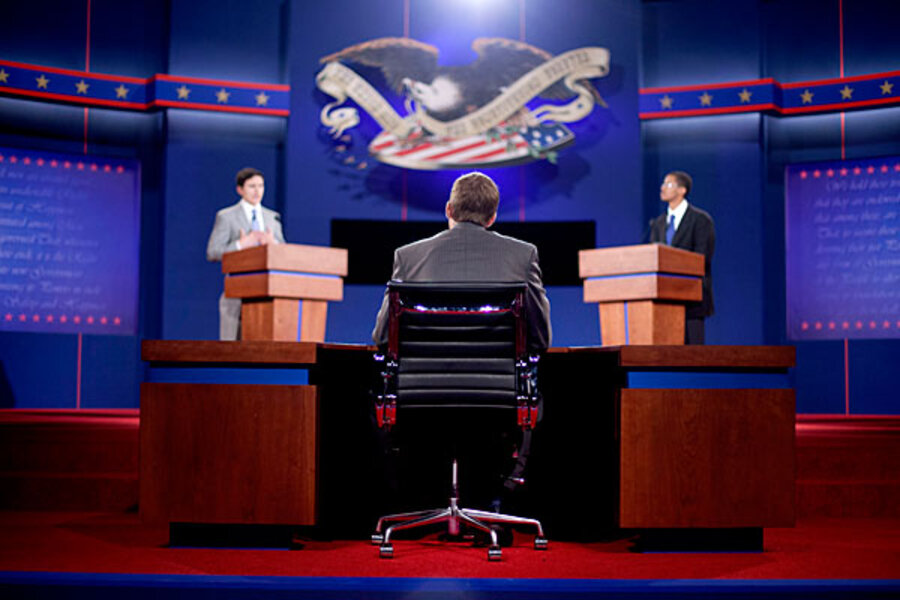Presidential debate: what you need to know about Jim Lehrer's rules
| Denver, Colo.
Millions of Americans will – presumably – tune in for tonight's debate, the first between President Obama and GOP presidential candidate Mitt Romney.
They're hoping for some political theater, hopefully some new insight into the candidates' views and policies and character, and perhaps a gaffe or game-changing moment.
But – while there may be some freewheeling conversation between Messrs. Obama and Romney – the debate itself is tightly scripted, with fairly strict rules.
Here's what you can expect:
How many questions will there be, and who chooses them?
In this first, 1-1/2-hour debate, there will be just six questions, all focused on domestic issues.
Moderator Jim Lehrer, of PBS Newshour, has already outlined what their basic thrust will be: three questions on the economy, one on health care, one on governing, and one on the role of government. Mr. Lehrer chooses the questions.
This is a change from past years, in which debates have typically had more questions and shorter discussion times. Lehrer, in part, advocated for the new format, and pushed to reduce the number of questions from nine to six, in the hopes that it would encourage more of a television talk-show approach, in which the candidates engage in discussion rather than just deliver talking points.
What are the rules of the debate?
Each question will have a 15-minute period devoted to it. After Lehrer asks the question, each candidate will get two minutes to respond. After that initial response, Lehrer can ask follow-up questions to provoke discussion between the two. The candidates will also have two minutes for closing statements.
The candidates cannot ask each other questions.
What about the rest of the debates?
The final presidential debate, on Oct. 22, will be the same as the first – but with foreign policy as the focus rather than domestic policy. CBS correspondent Bob Schieffer will moderate.
In between, the debate commission will shake things up with a town-hall style debate on Oct. 16. In that debate, undecided voters selected by Gallup will ask the questions. Candidates will each get two minutes to respond, along with an additional minute for the moderator (CNN correspondent Candy Crowley) to facilitate a discussion.
The vice presidential debate on Oct. 11 will be more similar to the first and last debates, but with nine 10-minute segments that focus on both domestic and foreign policy. ABC correspondent Martha Raddatz is moderating.
How have the candidates been preparing?
Romney has been practicing in Massachusetts with Ohio Sen. Rob Portman as the Obama stand-in. Massachusetts Sen. John Kerry, meanwhile, has been acting as Romney in Obama's debate-prep sessions in Nevada.






